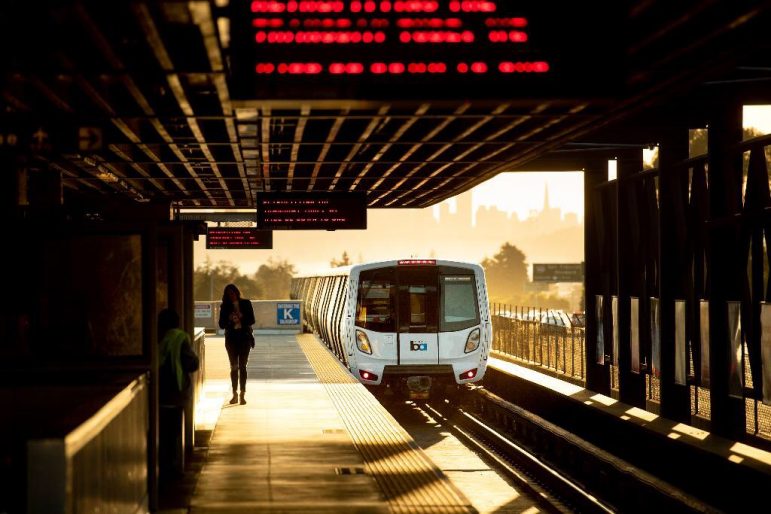Nearly half of Bay Area employers expect employees to work in person three days a week post-pandemic, a market shift that could result in roughly 1.1 million fewer commute trips per day, according to survey data released by the business group Bay Area Council.
The survey, conducted monthly since April, found that an average of 40.75 percent of Bay Area employers surveyed expect their workers to return to the office three days a week once the pandemic subsides.
Around 15 to 20 percent of employers said they expect their workers to return to in-person work five or more days per week while less than 5 percent of employers said they thought their employees would only work remotely post-pandemic.
Between one-quarter and one-third of employers who responded to the survey in October and November also said that, for now, they expect their employees to work from home full-time. Both figures represented a plurality of respondents.
The survey’s November results also found that 92 percent of employers had some level of confidence in a three-day in-person work week after the pandemic ends.
But while the broad reduction of in-person work is expected to lead to workers making fewer trips to their primary place of employment, traffic across the region is already approaching or exceeding pre-pandemic levels.
November traffic across the Bay Area’s seven state-owned toll bridges sat at 86 percent of November 2019 levels, according to the Bay Area Council and the Metropolitan Transportation Commission, while weekday Bay Bridge rush hour traffic surpassed November 2019 levels.
BART ridership, meanwhile, has rebounded somewhat on weekends, nearing 50 percent of the agencies pre-pandemic baseline ridership.

On weekdays, however, BART ridership has held between 20 and 30 percent of pre-pandemic levels. BART budget and planning officials have projected that the restoration of full pre-pandemic ridership may not be achievable until the end of the decade.
Kelly Obranowicz, the Bay Area Council’s policy and regulatory counsel, said it will be “vital” that Bay Area workers return to the region’s public transit systems in the coming months on the days they work in person.
“We are at a pivotal moment for Bay Area transportation — if more and more people continue to drive by car to get around as we are seeing them do now, once we reach the new post-pandemic norm for in office work, Bay Area traffic will hit levels we’ve never seen before,” she said.
The Bay Area Council received responses each month from as many as 253 employers, with all nine Bay Area counties represented in each survey.
The industries included in the survey also tended to skew toward “professional” workplaces, representing roughly one-quarter of respondents. Most industries were included in each group of respondents, however.
Bay Area Council researchers noted that the survey data is not intended to represent the expectations of all employers in the region.
